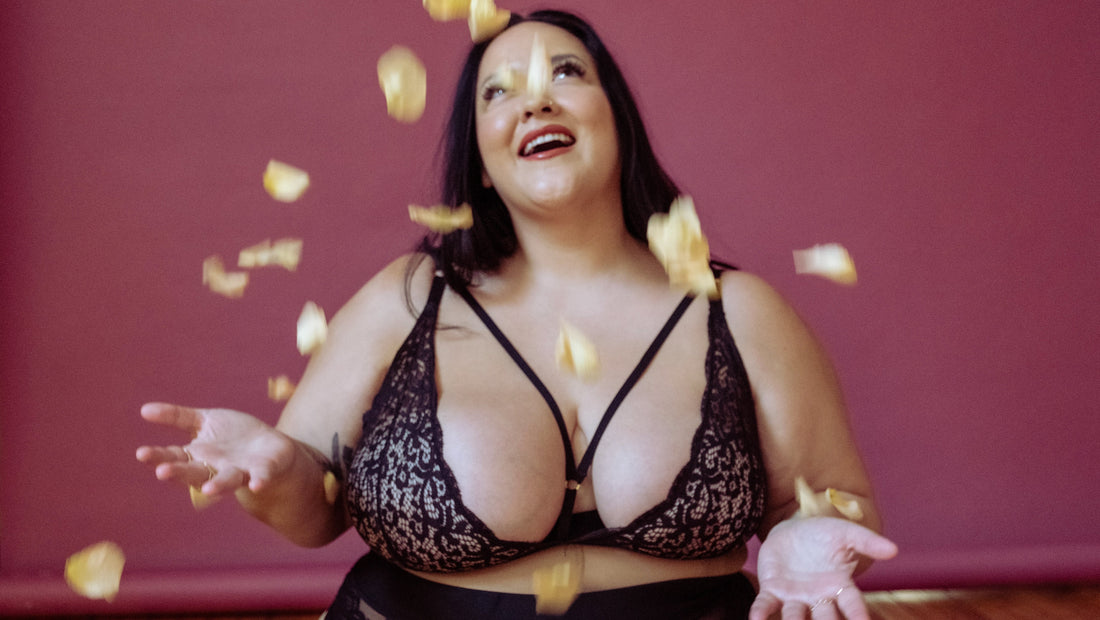
How the Seasons Affect Your Vulvovaginal Health
Share
Your skin isn’t the only thing that changes with the seasons—your vulvovaginal health can be impacted too. From temperature shifts to humidity levels, what we are wearing, doing and even eating... each season can brings different, exciting (just kidding) challenges for comfort, balance, and overall vulva and vaginal health
Your Vulva or Vagina in Winter: Dryness & Sensitivity
Cold weather and indoor heating can strip moisture from your skin, including the delicate vulvar tissue. This may lead to increased dryness, irritation, and even discomfort during sex. However, we tend to think the clothes we wear have a larger impact. Layers, tights, tight clothing in general can cause physical irritation.
What Helps?
- Stay hydrated during winter months, drink ALL the water.
- Avoid harsh soaps and opt for breathable, natural fabrics. In winter wool, cotton and cashmere are great options and can often be thrifted.
- Add tonic to your bath or directly to problem areas experiencing itching and inflammation
Spring: Allergies & Irritation
Seasonal allergies can cause increased histamine levels in the body, which may lead to more inflammation and itching—yes, even on your vulva. Warmer weather and sweat can also contribute to increase in bacterial growth and sometimes things such as yeast infections or bacterial vaginosis.
What Helps?
- If you have allergies that appear topically with any sort of itching, irritation or redness we recommend using our Soothe and Restore Salve.
- Change out of sweaty clothing quickly and use a gentle, antimicrobial spray like our Hydrosol.
Read: Why Consistency Matters To Improve Vaginal Health
Summer: Heat, Sweat & Infections
Hot, humid conditions create a breeding ground for yeast and bacteria. Increased sweating, especially in tight clothing or synthetic swimwear, can lead to chafing, irritation, or infections like yeast infections and UTIs.
What Helps?
- Change out of wet swimsuits or workout gear ASAP. Your vulva needs to breath.
- Keep your favorite product handy to soothe symptoms as soon as they start,
- Add a probiotic to keep things consistent. Ours addresses gut and vaginal microbiomes as well as boosts immunity.
We Know Summer Time is Challenging For Many, Read More Here.
Fall: Hormonal Shifts & Transition
As daylight hours shift, your body’s circadian rhythm—and possibly your hormone levels—can be affected. Some people experience changes in menstrual cycles, skin sensitivity, or increased susceptibility to stress-related imbalances. Fall is often a time to slow down and pay closer attention to our bodies needs.
What Helps?
- Support your body with rest, hydration, and other rituals that can feel soothing or grounding.
- Stretch, walk, eat nourishing foods
- Keep your routine simple and avoid over-washing or harsh products.
Year-Round Support for Your Vulvovaginal Health
Regardless of the season, prioritizing pH balance, moisture, and overall vaginal wellness can help prevent discomfort and infections. Don't forget that eating a nutritious, balanced diet, getting enough rest while incorporating plant-based, pH-friendly products all play into supporting body through seasonal shifts.
Feeling off? Pay attention to how the seasons impact your body, and adjust your care as needed. Because just like the weather, your needs change—and that’s totally normal.
Related Reading:
10 tips for improving your vaginal health
Refresh Your Vulvovaginal Health Routine
How Taking Care Of Our Sexual Health Can Increase Confidence.

